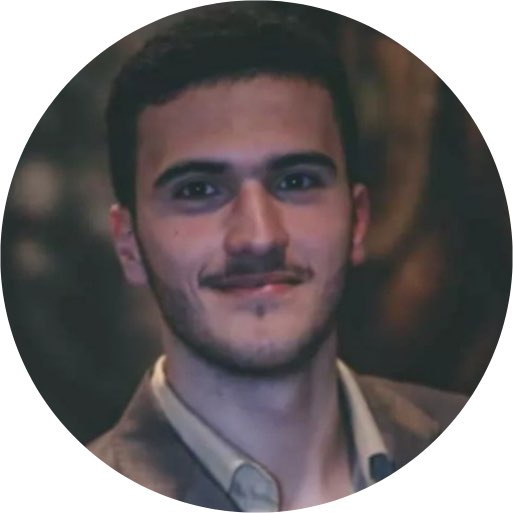The Research Traineeship Program
The Research Traineeship Program is a unique 6-month training program tailored to students and researchers from different backgrounds to help them get into behavioral economics and train them on how to conduct behavioral research, behavioral analysis, experimentation, and nudging interventions. The acceptance is selective but free of charge.
During the traineeship period, fellows will be able to explore the fundamental principles of behavioral science through different workshops and online sessions. Subsequently, they get to put into practice all the knowledge and skills they had acquired to drive solutions to real-world challenges. Each trainee has to select a project to work on, focusing on one or more Sustainable Development Goal (SDG).
Projects could have different outputs such as nudge interventions, designs to products and services, white papers, or research reports. Throughout the program, fellows will be exposed to our collaboration projects, learning materials, and a network of talented academic and business partners ensuring a dedicated mentorship and coaching.
By the end of the program, the trainees will be able to develop new behavioral insights, learn qualitative research, and apply behavioral economics in their professional and personal lives. Through their projects, they will contribute to helping governments improve policies, assisting organizations in implementing effective interventions, and encouraging people to make better choices.
About the Program
1
The program starts with a series of workshops to introduce behavioral economics, the discipline history and prominent researches, the importance of BE for businesses, policies, and organizations, and an explanation of the common concepts, biases, and heuristics.
2
Projects & research topics
Each trainee will select a project to work on throughout the program. The project could be a nudge intervention, behavioral solutions to social and economic challenges, or a recommendation report for a product or service design. Essentially, the research topic should be based on one of the UN Sustainable Development and the results should be based on rigorous research. The program continues with a series of group and one-to-one workshops on how to apply behavioral economics for social good, to help trainees choose their research topic, objectives, and questions.
3
The literature review
At this step, trainees conduct a literature review on their research topic. Coaching sessions with the instructors to help them conduct the literature review and explain new concepts and theories.
4
Data collection
Depending on the research questions and objectives, trainees conduct qualitative research, quantitative research, or both. They start collecting data with the help of partners like universities, businesses, and non-profit organizations, experts in the field, and through different methods: surveys, interviews, focus groups, user research, observations, etc. We provide in-person coaching to help trainees learn the research methodologies including sampling techniques and data collection techniques.
5
Research findings and behavioral diagnosis
The next step is gathering data, analyzing it, and interpreting it from a behavioral perspective. The program continues with in-person training sessions on qualitative and quantitative data analysis and workshops on how to conduct a behavioral diagnosis, generate behavioral insights, and identify barriers and drivers of key behaviors.
6
Intervention Design
Ideation and training sessions on how to use the behavioral insights generated to design low-cost and effective interventions such as nudging interventions and solutions to improve products or services.
7
Experimental Design
One-to-one training sessions on experimental design and data analysis. The sessions focus on Randomised Controlled Trial design and how to build hypotheses, samples, and variants.
8
Report creation
The last step of the program consists of creating the final research report to present and explain the research findings, behavioral insights, and experimentations results if available.
Meet the Trainees

Arij Ben Mohamed
SDG 16: Peace, justice, and strong institutions
Region: Gabes

BelHassen El Bohli
SDG 3: Good health and well-being
Region: Tunis

Chem Toumi
SDG 3: Good health and well-being
Region: Ben Arous

Emna Najjar
SDG 4: Quality education
Region: Ariana

Eya Hidri
SDG 12: Responsible consumption and production
Region: Kef

Eya Ksomtini
SDG 4: Quality education
Region: Ariana

Farah Abboucha
SDG 8: Decent work and economic growth
Region: Bizerte

Hiba Allagui
SDG16: Peace, justice and strong institutions
Region: Mornag

Hind Mtimet
SDG 13: Climate action
Region: Zarzis

Imen Harazi
SDG 12: Responsible consumption and production
Region: Djerba

Mariam Ben Yahya
SDG 10: Reduced inequality
Region: Kebili

Meriem Frej
SDG 1: No poverty
Region: Monastir

Molk Hermi
SDG 8: Decent work and economic growth
Region: Jendouba

Nada Jouibli
SDG 5: Gender equality
Region: Sousse

Wissal Zribi
SDG 8: Decent work and economic growth
Region: Tunis

Yassin ben Ayed
SDG 8: Decent work and economic growth
Region: Tunis

